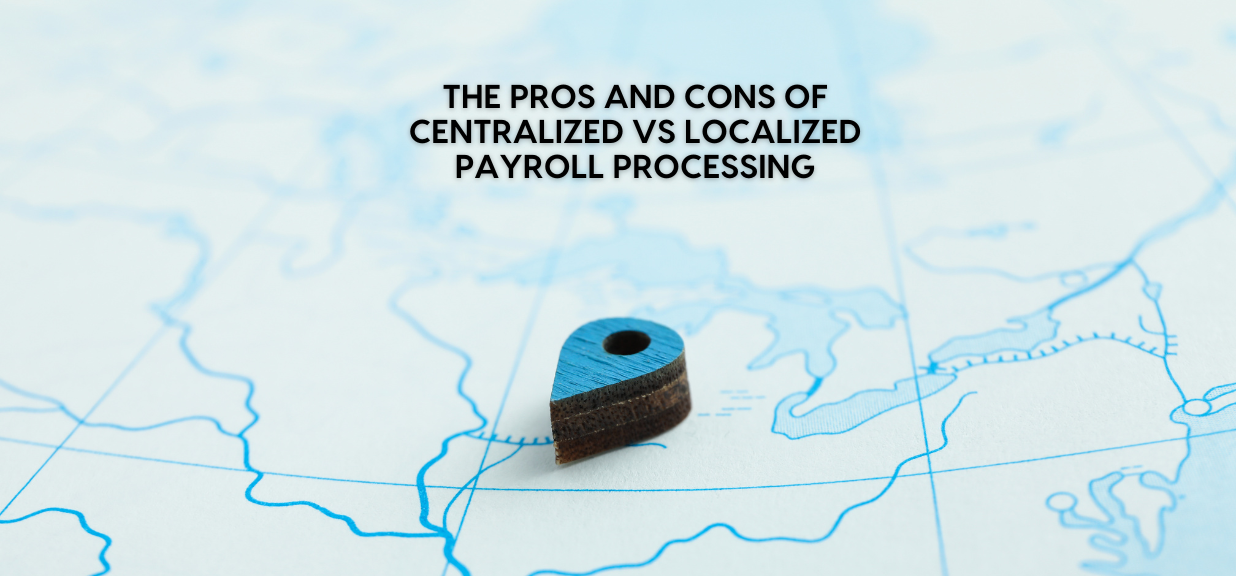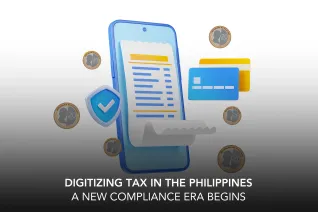Centralized vs. Decentralized Global Payroll: A Guide for Modern Businesses

Let's face it: Payroll can be a real hassle. For some business owners, it's a monthly ordeal that leads to frantic calculator tapping.
But fear not!
Just like conducting a world-class orchestra, you can harmonize your payroll processes with the right system in place. Do you prefer the precision and control of a seasoned maestro or the flexibility of an improvisational jazz band?
We’ll explore the pros and cons of centralized and decentralized payroll systems to help you find the perfect symphony for your business!
What is a centralized payroll system?
Centralized payroll puts all your payroll operations under one roof – a single platform handling everything from salaries and taxes to benefits and paychecks. This ensures consistent processes for all your employees, no matter where they're located. Imagine a global payroll orchestra, with everyone playing the same sheet music!
It's a system built for efficiency and control, perfect for keeping your global workforce in perfect harmony (and getting paid on time!)
Now let’s look at the advantages of a centralized payroll system.
Cost Efficiency: Picture processing payroll for all your employees at once, rather than department by department. This "bulk processing" allows you to negotiate better rates with vendors and reduce administrative costs associated with running multiple payroll systems.
For instance, instead of paying a processing fee per paycheck for each department, you negotiate a single lower fee for the entire company.
Consistency and Accuracy: With standardized processes across the board, there's less room for errors in calculations, deductions, and ensuring compliance with tax regulations. Think of it like having one recipe for calculating salaries and taxes – everyone follows the same steps, minimizing mistakes.
Compliance and Reporting: Staying updated on complex tax regulations can be a nightmare. A dedicated centralized team can become compliance experts, ensuring you avoid fines and penalties. Reporting to tax authorities and other agencies becomes streamlined with all the data readily available in one place.
Download I A guide to processing payroll in 5 clicks
Data Security and Privacy: Centralized systems often have more robust security measures in place to protect sensitive employee information, such as salaries and social security numbers. This minimizes the risk of data breaches and ensures employee privacy.
Scalability: As your company grows, adding new employees or locations becomes a breeze with a centralized system. You simply add resources to the central payroll team to handle the increased workload without needing to set up separate payroll systems for each new branch. For example, when your company acquires a new subsidiary overseas, with centralized payroll, you can easily integrate the new employees into the existing system, ensuring they get paid on time and according to local regulations.
What is a Decentralized Payroll system?
Instead of having one central team calling the shots, decentralized payroll empowers local teams or outsourced vendors in each country where your company operates. Startups often choose this approach for one main reason: it's faster to get up and running (no need to build a whole payroll department from scratch!)
However, with decentralized payroll, things can get a little… well, decentralized. Each vendor might have their own way of doing things, using different software platforms. Decisions are made by various people at different levels, which can sometimes lead to a lack of communication and even incompatible systems. It's like having a band with everyone playing a different instrument and nobody agreeing on the song!
A decentralized payroll offers a different set of advantages from a centralized system.
Local Autonomy: Consider a scenario where your California-based sales team requires commission bonuses in addition to their base salary. With a decentralized payroll system, they can tailor the system to accommodate this specific need, which might be less flexible than a centralized system.
Quick Decision-Making: Local payroll administrators are closer to the action and can respond faster to employee inquiries or payroll issues. No need to wait for approvals from a central team!
Cultural Sensitivity: When operating in different countries, it's important to be mindful of local practices and regulations. Decentralized payroll allows for easier accommodation of regional or country-specific tax laws, cultural nuances, and payroll practices. (A company with offices in Japan might need to factor in bonuses specific to Japanese holidays or ensure compliance with local social security contributions, which a decentralized payroll system in Japan can handle effectively.)
Also Read I Top 7 Global Payroll Challenges
Customization: Departments can choose software that best suits their specific needs This allows for a more tailored fit compared to a one-size-fits-all approach in a centralized system.
Responsiveness to Local Regulations: Staying compliant with local labor laws can be complex. Decentralized payroll allows local teams to address these regulations more efficiently.
However, there are some potential downsides to be considered:
Increased Risk of Errors: With multiple teams and potentially different software platforms, inconsistencies in payroll processes can lead to errors in calculations, deductions, or compliance.
Compliance Challenges: Staying updated on regulations across different locations can be complex, especially for companies operating in multiple countries. For example, if a new regulation is introduced requiring mandatory parental leave in one of the company's operating countries. The decentralized payroll team in that location must be aware of the change and update the system accordingly, which can be challenging without a centralized team overseeing compliance across all locations.
Data Security Concerns: Maintaining robust data security measures across multiple systems can be more challenging compared to a centralized system with stronger security protocols.
Limited Scalability: As your company expands, the need to add new locations or departments can strain decentralized teams, potentially leading to inefficiency. In contrast, a centralized system concentrates resources, making it more efficient to handle increased workloads.
Reduced Visibility: In decentralized Systems, maintaining oversight and control over overall payroll operations can be a challenge. This can make it harder to identify trends, analyze costs, or ensure consistency across the company, underscoring the benefits of a centralized system.
So, how do you decide between a centralized or decentralized payroll system?
Well, here are some key factors to consider:
Compliance Complexity: Dealing with various tax regulations and labor laws across different countries can be a nightmare. For a multinational corporation with thousands of employees spread across the globe, a centralized system with a dedicated compliance team can streamline this process, ensuring everything is done correctly.
Need for Consistency: If consistency in payroll practices is important for your company culture, a centralized system ensures everyone gets paid the same way, regardless of location or department. For example, a company with a strong focus on employee equality might prefer a centralized system to ensure everyone receives benefits and compensation calculated using the same standardized approach.
Desired Level of Control: A centralized system offers greater control over the entire process. Decentralized systems offer more autonomy to local teams but might sacrifice some central oversight.
Growth Projections: Take into account how your company plans to expand in the future. A centralized system, with its potential for easier scaling by adding resources to the central payroll team, offers a more streamlined approach. In contrast, decentralized systems may necessitate the establishment of additional payroll teams in new locations, potentially introducing complexities that could be avoided.
Still confused about which suits your organizational needs? Contact our experts for better clarity, or request a demo to see how we can help your team scale up!
Latest Resources
Stay informed with latest updates
If you're curious and have a thirst for knowledge pertaining to the HR, payroll, and EOR universe, don't miss out on subscribing to our resources.
















